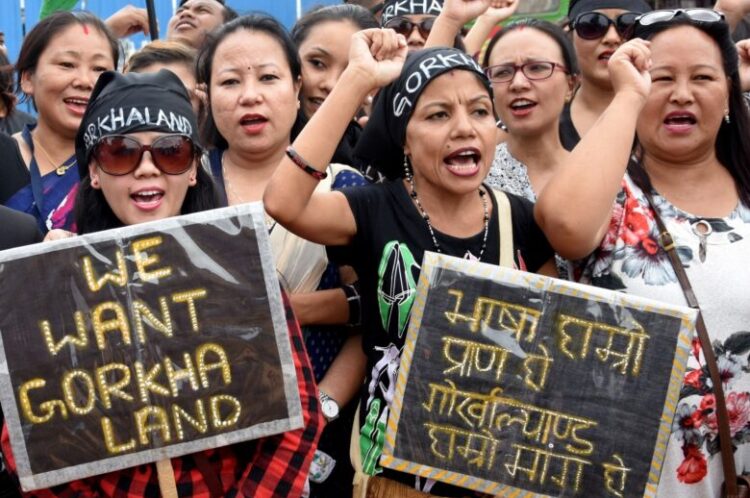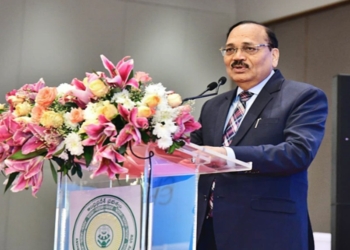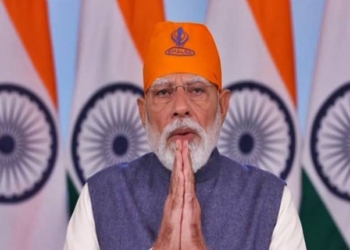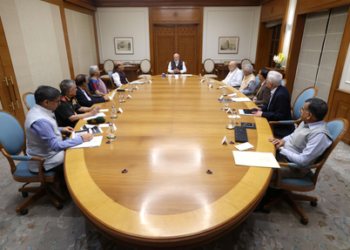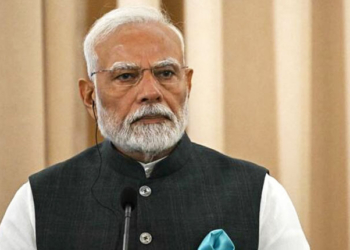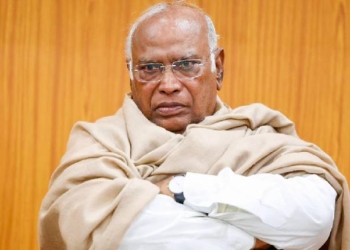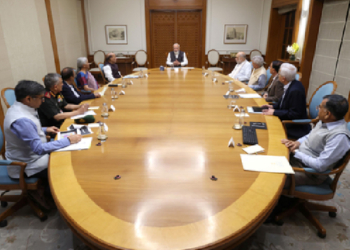Kolkata: First it was the Subhash Ghising-led Gorkha National Liberation Front (GNLF) and then it was the Bimal Gurung- led Gorkha Janmukti Morcha.
Starting from the earlier Left Front regime first led by Jyoti Basu and then Buddhadeb Bhattacharjee till the current Trinamool Congress regime under the leadership of Mamata Banerjee, the politics in the hills of Darjeeling, Kurseong, and Kalimpong had always been revolving around the reflection of Gorkha sub-nationalism that vented in the form of the movement for a separate Gorkhaland state proposed to be carved out of these three hill areas in addition to certain plain areas in Terai and Dooars regions of north Bengal.
Since Ghising’s time till the recent past, the sentiment of the people of the hills circled around their Gorkha identity and sub-nationalism, which prompted them to back several bloody movements for a separate Gorkhaland, even if those movements had a negative impact on the tourism and tea sectors, which were the principal or rather the only sources of income for the local people.
It was common perception for a long time that the people in the hills of north Bengal would prefer to go to bed on an empty stomach for days instead of compromising on the demand for a separate Gorkhaland state. Since the 2009 Lok Sabha elections, the BJP successfully used that Gorkha sub-nationalism sentiment and managed to get their candidates elected from the Darjeeling Lok Sabha constituency in three consecutive parliamentary elections in 2009, 2014, and 2019.
Although a smaller faction of the hill political forces tried to raise the question whether the issue of overall development in the hills was more important than the demand for a separate Gorkhaland, their voices remained subdued in front of the overwhelming sentiment of Gorkha identity in the form of separate statehood.
However, the results of the recently concluded panchayat polls in West Bengal indicated a dilution in that aggressive vent of sub-nationalism and a shift in the public pulse from the hardliners voicing that sentiment of a separate Gorkhaland state through a permanent political solution.
Observers of the twists and turns in the hill politics feel that although it is too early to comment whether this dilution in the Gorkha sub-nationalism concept will be a long- standing phenomenon or a temporary swing, the results of the rural civic body polls in the two hills districts is not a favourable indication for the BJP before the big battle of the 2024 Lok Sabha polls. Besides losing the public pulse, the BJP has also started facing scathing criticism from its closest associate in the hills, Bimal Gurung that the “double- stands maintained by the saffron camp over the issue of a permanent political solution” has resulted in such a disaster in the civic body polls.
Political observers feel that probably the results of the rural civic body polls is an indication of a new realization among a large section of the hill voters that while a permanent political solution which includes the issue of a separate Gorkhaland state cannot be achieved overnight, any further militant movement on the issue will only add to the sufferings and impact adversely on the livelihood of the common people there.
A permanent political solution, feel observers, is an issue which all major national and state parties had been exploiting over the years for their own political benefit. “Now it is to be seen how long this dilution in sub-nationalism remains till the time someone or some force resurrects the sub-nationalism sentiments giving the movement a different shape,” said a city- based political observer.
(IANS)




